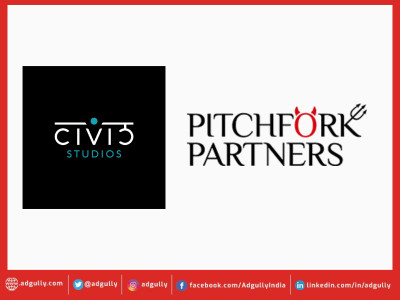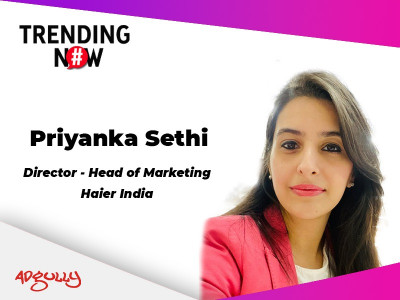“Women’s participation in the workforce in India has been reducing for a whileâ€
We, at Adgully, have always saluted and honoured women managers and leaders across diverse fields. W-SUITE is a special initiative from Adgully that has been turning the spotlight on some of the most remarkable women achievers in M&E, Advertising, Marketing, PR and Communications industry. In the refurbished series, we seek to find out how women leaders have been managing their teams and work as well as how they have been navigating through the toughest and most challenging times brought about by the global pandemic.
Anushka Shah, Founder, Civic Studios, is focused on telling how entertainment could be used to strengthen democracy and society. With superhit projects like ‘Vakeel Babu’ (which had made it's way to several national and international film festivals)"and ‘Ye Saali Naukri’ (crossed 5 million views on YouTube in just 60 days of its release), Shah is someone who wants to make an impact and has a strong opinion about things that matter.
In conversation with Adgully, Anushka Shah speaks about how crisis on the surface can offer opportunities, lessons learned from the pandemic, necessary traits of effective leadership, and more.
How do you think the role and scope of women leaders has widened in the current market ecosystem?
Women’s participation in the workforce in India has been reducing for a while – it was 42% before the pandemic and that fell even further after. It would be wonderful to believe that the scope for women leaders has widened in the current ecosystem, and in certain industries and businesses that is certainly true, but not on the whole. To widen the scope for female leadership, we need to have public and social policies that will support this.
What has been your major learning from the pandemic period?
The pandemic taught us all many things across various fronts. On the personal front, the value of home, family, and being close to loved ones. On the social front, that as a society we are poorly organised to offer welfare systems and protections for vulnerable and marginalised communities. On the professional front, businesses that can adapt quickly and be resilient in the face of change will survive and grow with such opportunities.
What is your mantra for maintaining a successful work life balance in the new normal? According to you, what makes women the best in crisis management?
The only thing constant is change, so I don’t know if there’s a new normal – our work-life balance is likely to keep evolving with time and technology. On most days work from home has allowed me to cut down on travel time and allot that towards personal requirements, but on other days that extra time has translated to longer work hours – it’s not always possible to succeed at it, but if you are drawing the line on most days that’s good.
I don’t think women over other genders are best at crisis management – everyone brings their own advantages.
What are the five most effective leadership lessons that you have learned?
The most effective lessons I have learned in leadership through the pandemic (assuming this question refers to this and not in general) are:
- Moments of sudden change can seem like a crisis on the surface, but can offer opportunities for new solutions and new growth.
- Sometimes in times of crisis you have to make hard decisions, but taking the input and making decisions actively by listening to the team you’re working with can help make those decisions more responsible.
- No matter how hard you try, you will make mistakes, and being open and transparent about those will help you learn from others and their feedback on it.
- In times of hardship, it can be easy to deprioritise certain activities and spends that are not directly about profit but about well-being and culture, but in the long run that can cause more damage overall.
- Effective leadership requires responsible leadership – towards your business and your team yes, but also towards society and thinking about the meaningful role your company can play in making the world a better place.
Gender sensitivity and inclusion in the new normal – how can organisations effectively encourage and groom women leaders in challenging times?
Ensuring no discrimination at the time of hiring or once in the work place and equal pay are the bare basic necessities. Offering networking opportunities and mentorship structures really help meet with and learn from other women leaders. Taking a more understanding approach to the multiple roles women play in unequal societies – we can’t set structures in the workplace that assume women and men are playing the same roles to play outside in the world too.
















Share
Facebook
YouTube
Tweet
Twitter
LinkedIn